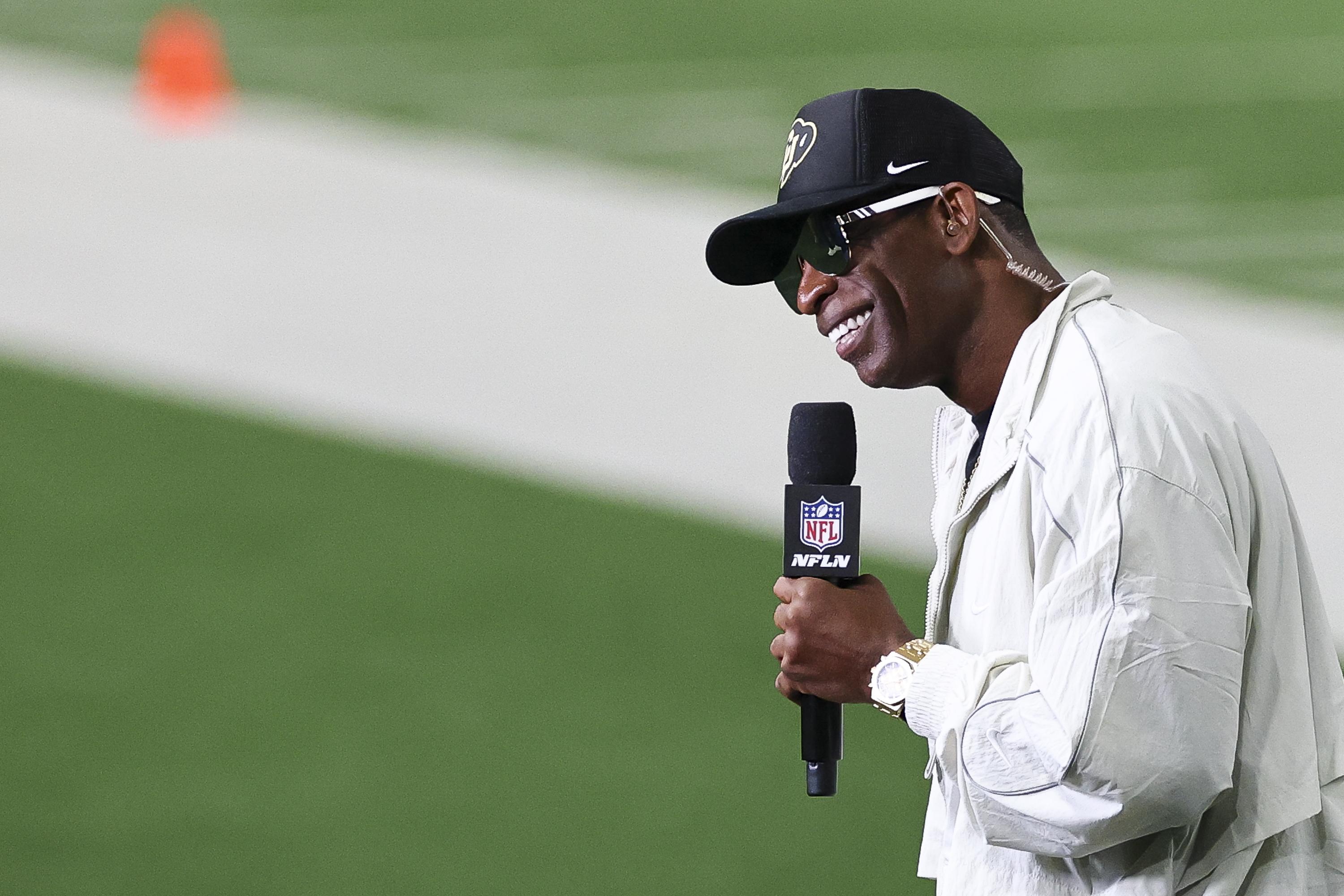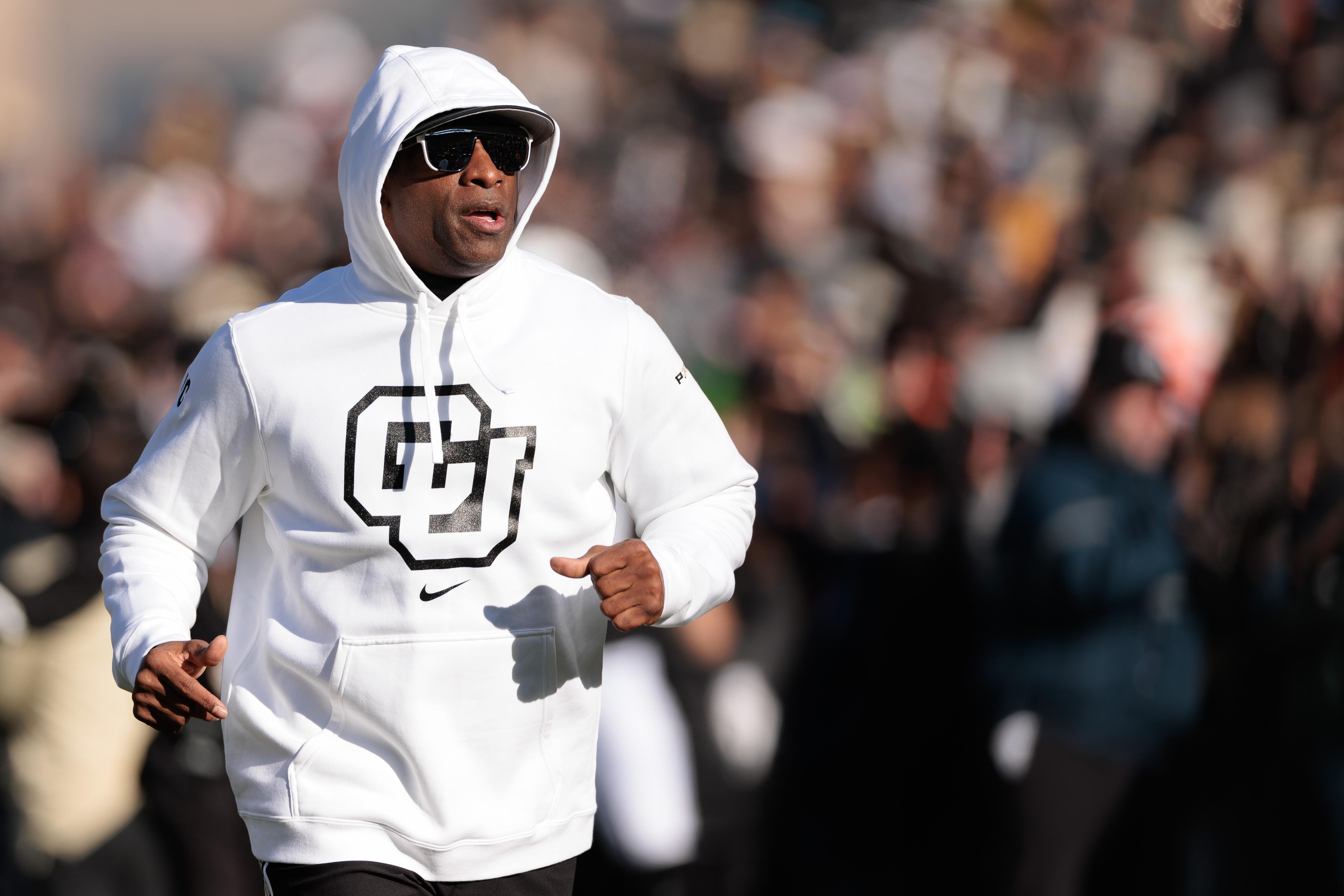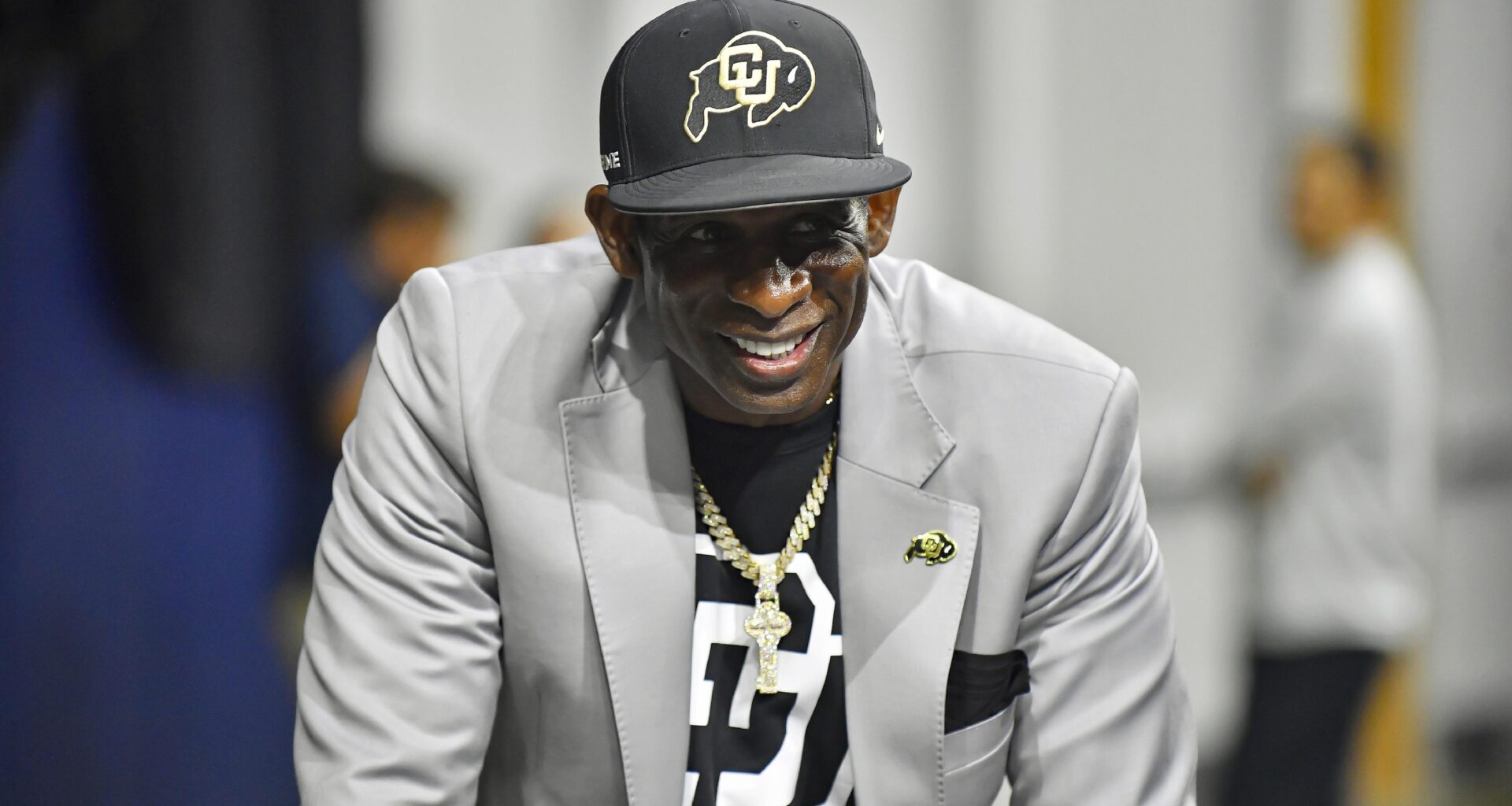For all the pandemonium and commotion he has produced in a few short years, Deion Sanders is plenty sensible. He’s thoughtful. And he’s certainly never shy.
At a time when the sport is large on issues and short on fixes, Colorado’s head football coach has an idea. Although the fix is imperfect, easily manipulated and short of what college football needs—and we’ll get to that—it’s worth celebrating a coach who’s willing to offer up a solution on the heels of criticism.
In the era of the transfer portal and NIL, the premise of Sanders’ remedy is simple: College football needs a salary cap.
“I wish there was a cap,” Sanders said while speaking to reporters at Big 12 media days (via ESPN). “Like, the top-of-the-line player makes this, and if you’re not that type of guy, you know you’re not going to make that. That’s what the NFL does.”
Sanders, of course, has never been reluctant to speak his mind. He’s also taken full advantage of the transfer portal and NIL at Colorado since he arrived. Despite having less resources than other schools, Sanders has utilized his persona to masterfully resurrect a roster that needed fixing.
Still, things are much different now than when he arrived before the 2023 season. While Sanders has shown the ability to thrive in an unstable environment, he’s keenly aware of how certain programs will carry an even larger advantage moving forward.

Aaron M. Sprecher/Getty Images
“You understand darn near why they’re in the playoffs,” Sanders said about some teams having an easier path to the postseason due to resources. “It’s kind of hard to compete with somebody who’s giving $25-30 million to a freshman class. It’s crazy.”
None of what Sanders is saying is wrong. The way college football has implemented its new era of financial compensation—from NIL to direct revenue sharing to the transfer portal—has been nothing short of a colossal failure rife with manipulation.
The NCAA’s unwillingness to embrace change sooner, coupled with a flurry of legal rulings, have forced teams to act in their best interests without guardrails. The ultra-competitive landscape has essentially transformed the way teams operate, starting with talent acquisition first and foremost.
It’s an utter mess. Sanders is right about that. But to assume a salary cap would solve these woes is where the idea quickly loses steam.
A noble idea? Sure, even if the outcome is undeniably personal.
A realistic idea? Presently, not at all.
Limits on revenue sharing are loosely in place, as schools can now spend a maximum of roughly $20.5 million directly on student-athletes. The sport is at least trying to curtail some of the madness. With that being said, the existence of NIL (albeit in its newly mutated form) along with the possibility of paying players the good old-fashioned way—under the table with no paper trail whatsoever—still persists.
New rules have brought these handshake agreements out in the open, but the practice is by no means forgotten. A salary cap of any kind would simply generate new off-the-radar ways to convince players to play for a specific team or coach.

Andrew Wevers/Getty Images
For proof of this practice, look at how recruiting played out over the past few decades. In the end, programs with more resources will still find more ways to utilize them.
Such has been the case for college football for as long as it has existed in this form. Such will be the case as it continues to operate in this financial era, whether the contributions are reported or not.
In many ways, Sanders is the greatest counter to this movement. His stardom is so robust and his reputation so large that high schoolers will choose to play for him, even if it means taking a pay cut of some kind.
In this era, Sanders is the ultimate equalizer. But even he recognizes that there are limits to his gifts—that his presence can only do so much.
His suggestion, in many senses, comes from a source of frustration. Given his situation, it’s not hard to see why. It also doesn’t mean he’s necessarily wrong.
If all things were considered equal, he would have a point. But the sport is too far gone to think a simple salary cap could solve it. The schools and their many tentacles will find a way, whether it’s widely recognized or not.
Things are not equal, and they won’t be equal moving forward, either.
More structure is needed. More leadership is necessary. More guidance would only help a sport that desperately needs it. But a salary cap won’t suddenly shift the landscape; decades of results tell us just that.
In many respects, college football’s problems run far deeper.

